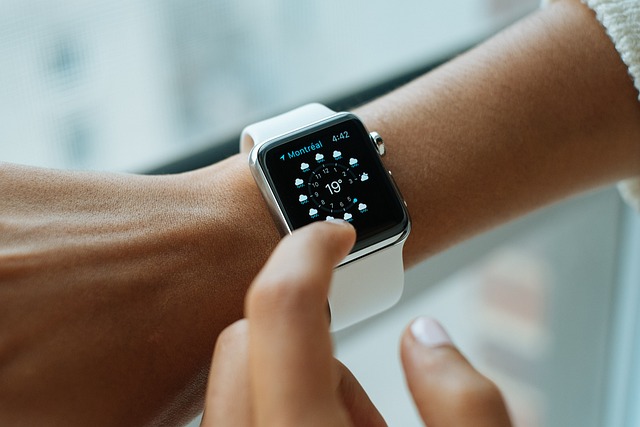Discover more about the potential advantages of consuming coffee before a workout for improved performance, energy, endurance, calorie burn, and other factors.
Some active individuals and athletes desire to improve their athletic performance with stimulants while avoiding the negative side effects of unregulated substances. Coffee, which contains the natural stimulant caffeine, may be a good alternative. Black coffee is a common pre-workout beverage.
Coffee Before a Workout Aids in Fat Burning and Energy Boosting
Coffee’s strong caffeine content considerably improves the body’s ability to burn fat during exercise. Furthermore, because caffeine suppresses hunger, drinking coffee in the morning means ingesting fewer calories throughout the day.
Caffeine has been shown in studies to significantly boost fat oxidation (burning) due to higher metabolism. This suggests that coffee boosts fat burning during exercise and for several hours afterward.
The majority of caffeine research employs a dosage of 5 mg to 6 mg kg per kilogram of body weight. If you are a 150-pound athlete (approximately 68 kilos of body weight), the recommended caffeine dose is 340 mg to 409 mg. Caffeine levels in one cup of coffee range between 95 and 100 mg.
If you’ve never used caffeine before, a recommended starting dose is 2mg to 3mg per kilogram of body weight or 136mg to 204mg for a 150-pound person.
Caffeine enters your bloodstream within 15 minutes of ingestion. Coffee’s stimulating effect peaks 40 to 80 minutes after consuming a cup. When caffeine enters the bloodstream, the body reacts in a variety of ways.

Blood pressure and heart rate rise, fat stores are depleted, and fatty acids enter the bloodstream. As a result, many people feel energized and ready for a wonderful workout.
Individuals who are pregnant or who have medical issues such as hypertension, acid reflux, or caffeine sensitivity should avoid drinking coffee without first consulting their doctor.
Coffee Boosts Metabolism
Caffeine raises the metabolic rate, which is the rate the body uses or burns energy. According to research, drinking coffee causes a considerable boost in metabolic rate that lasts three hours after caffeine administration.
Coffee and caffeine have the same effect on the body as any other substance. The usage of excessive doses on a regular basis is detrimental. In this case, more is not better, and a modest amount might produce excellent benefits.
Coffee boosts athletic performance
“When ingested in low-to-moderate dosages, caffeine significantly boosts several forms of performance,” according to the International Society of Sports Nutrition. Even if you already consume coffee, you may discover that simply drinking it before working out improves your performance.
Caffeine provides athletes to train for longer periods of time, with increased power output and resilience to exhaustion. Coffee appears to aid endurance athletes greatly.
During extensive workouts, coffee induces the body to use fat stores instead of muscle glycogen (sugar). This enables extended use of working muscles.
According to research on coffee and the rate of perceived exertion (RPE), athletes who took coffee had a more pleasurable exercise experience. During their workouts, they felt less weariness and effort.
When and how much coffee to consume before a workout
According to most studies, you should drink coffee 45-60 minutes before exercise to allow the caffeine to be absorbed into your system and reach its full efficiency.
Caffeine is an excellent ergogenic aid when eaten at levels of 0.9-2.7 mg per pound (2-6 mg per kg) of body weight, according to the International Society of Sports Nutrition (ISSN). This equates to around 135-405 mg for a 150-pound (68-kg) person.
Nonetheless, the average gym-goer will likely benefit from eating caffeine at the lower end of the recommended range.
While an average cup of coffee contains approximately 100 mg of caffeine, having 1-2 cups (240-475 mL) 45-60 minutes before your workout will supply you with more than enough caffeine to support your performance.
Coffee varieties to try before your workout
Caffeine is commonly used in the form of coffee, pre-workout supplements, gum, and candy, but there are other caffeinated sports nutrition aids available.
Although most research on coffee’s impact on athletic performance has employed instant or ordinary coffee, there are various ways to brew coffee, such as a French press, pod brewing systems, and espresso, which are likely to offer the same benefits.
Adding dairy or plant-based milk adds a few calories, protein, and carbs but is unlikely to alter your performance. If you intend to undertake fasted cardio — or exercise before eating — you should only consume black coffee, which has no carbs.
Avoid specialty coffees with additional syrups and flavorings, which are typically heavy in calories and sugar. These drinks not only have the potential to undermine your fitness goals, but they are also more difficult to digest.
Coffee Improves Focus
Caffeine and coffee enhance mental focus. Caffeine is one of the natural stimulants that can improve brain function and the parts of the brain responsible for focus and memory. Workouts become more productive and effective when one’s brain is sharp.
Caffeine may boost mental function and slow the progression of age-related mental deterioration, according to one research on older persons.

Another study looked at the effects of caffeine on the prefrontal lobe of the brain. This brain region is responsible for attention span, planning, and concentration. Caffeine increased brain function in this area, according to the findings.
Another study looked at how caffeine affects athletes’ cognitive abilities. Caffeine consumption prior to severe fitness training enhanced concentration and the ability to maintain high levels of exercise intensity. These results also included athletes who did not get enough sleep.
Coffee alleviates muscle pain
According to a short study involving 9 women, having two cups of coffee can help lessen post-workout muscular soreness. This is significant for athletes who are concerned about soreness after a strenuous workout.
Another small study of 9 caffeine-consuming males discovered that caffeine significantly reduced post-workout muscular pain and shortened recovery time when evaluated on days 2 and 3 post-workout compared to a placebo.
Those who consumed coffee before upper body weight training performed more repetitions on their final session.
A cup of coffee before exercise may benefit those who tend to give up throughout a workout. When the muscle is stimulated during exercise, the lactic acid buildup can be unpleasant. Because of this discomfort, some people stop exercising.
Risks and adverse effects
Most persons can comfortably consume up to 400 mg of caffeine per day, which is approximately 3-4 cups (710-945 mL) of coffee.
Caffeine tolerance, on the other hand, is highly individual, with some people tolerating higher dosages and others having undesirable side effects after just one cup of coffee. Read below to see what are the common side effects we found:
- anxiety
- nervousness
- elevated heart rate
- irritation caused by a fast pulse
- Sleep disturbance or insomnia
- Tremors and stomach discomfort
Extreme caffeine consumption (over 1,000 mg) combined with severe activity may result in rhabdomyolysis, a disorder that breaks down your body’s muscles and can lead to renal failure.
Also, pregnant women should limit their caffeine use to 200 mg per day and consult their healthcare professional before utilizing coffee or other caffeine sources for athletic performance.
Coffee Aids in Disease Prevention
Coffee includes potent antioxidants that can lower your risk of disease. Antioxidants act by eliminating free radicals, which cause inflammation and, thus, illnesses and diseases. Coffee is one of the top antioxidant sources in the diets of Americans.
Caffeine and coffee consumption have been associated with illness prevention. Coffee has been found in studies to reduce inflammation, relieve Parkinson’s disease symptoms, and cut the risk of some malignancies. It may help reduce the likelihood of gallstones.
To Conclude
If you need a little pick-me-up before your workout, coffee might be worth a try. It has been shown to deliver a small energy boost while being less stimulative and having fewer adverse effects than pre-workout supplements.
If you have any worries or chronic diseases, consult your doctor before using coffee or any other substance.
